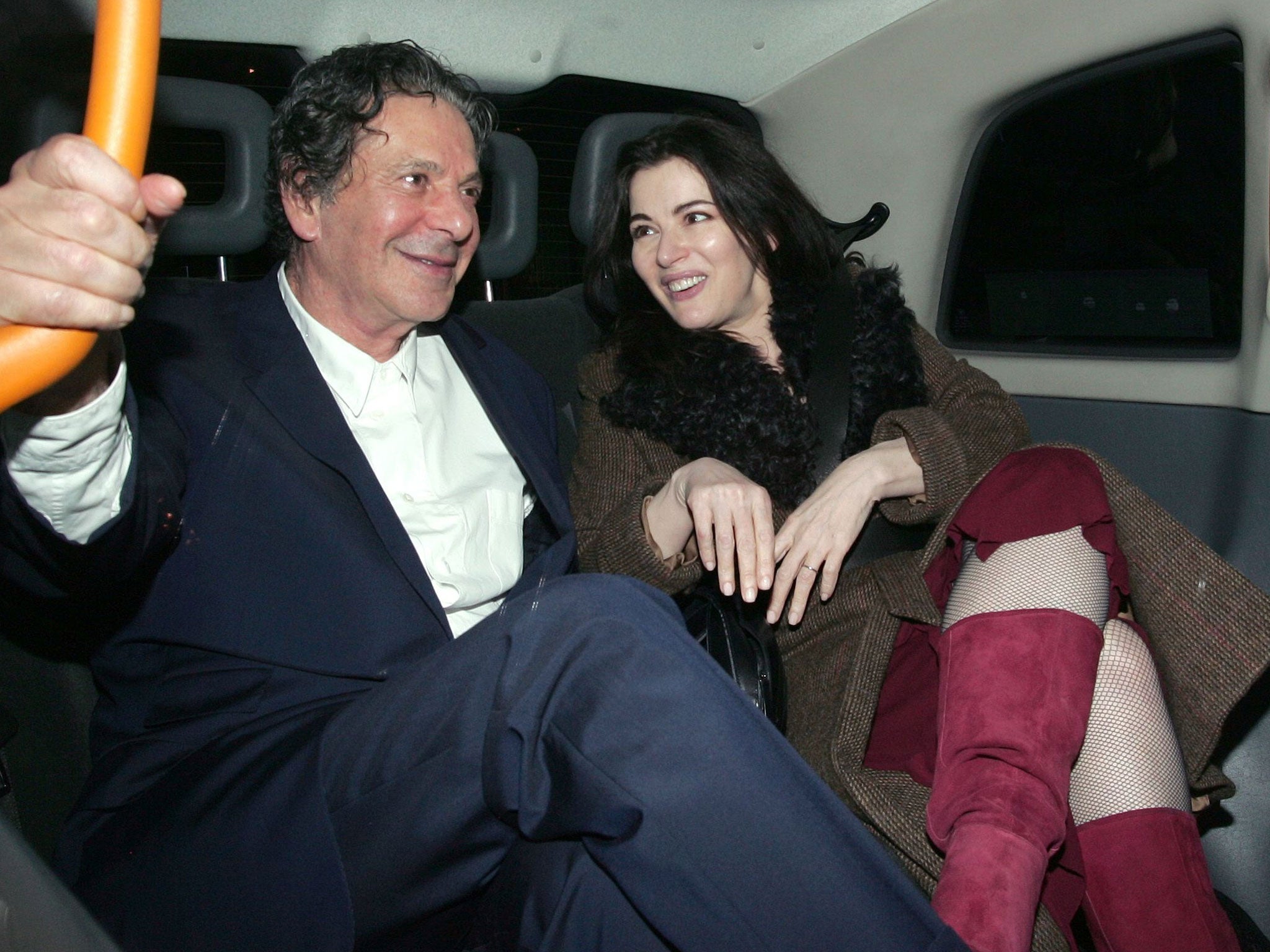What Nigella-gate tells us about public and private space
Those who would shame a man on the street might not react the same if they witnessed a celebrity argument. That's a depressing reality for women in the public eye

Your support helps us to tell the story
From reproductive rights to climate change to Big Tech, The Independent is on the ground when the story is developing. Whether it's investigating the financials of Elon Musk's pro-Trump PAC or producing our latest documentary, 'The A Word', which shines a light on the American women fighting for reproductive rights, we know how important it is to parse out the facts from the messaging.
At such a critical moment in US history, we need reporters on the ground. Your donation allows us to keep sending journalists to speak to both sides of the story.
The Independent is trusted by Americans across the entire political spectrum. And unlike many other quality news outlets, we choose not to lock Americans out of our reporting and analysis with paywalls. We believe quality journalism should be available to everyone, paid for by those who can afford it.
Your support makes all the difference.The cult of celebrity has flagged up that most coveted commodity of the modern age: privacy.
Privacy, is the conundrum of our age, and if recent events are anything to go by, the conversation is only set to grow. Over the last few years terms like ‘super-injunctions’ and ‘gagging orders’ have entered the public vernacular, and the Leveson enquiry (though, it still has a way to go) has meant that privacy is being scrutinized like never before. Thanks to these stories, the public psychology is far more attuned to what is and isn’t acceptable. We are told that taking a photograph of a celebrity child for instance, is unacceptable, (indicated by a blurred face). A princess’s breast on holiday? Unacceptable. A pop star giving being set up by a tabloid? Perfectly acceptable!
While none of these instances equate to what went on over dinner with Charles Saatchi and Nigella Lawson this week, the message is clear: that the space that ‘celebrity’ occupies is different to ours, and as such, private space should be respected and treated accordingly.
So far, so good, until we consider recent events. This idea of ‘privacy’ draws an imaginary line that makes it more difficult for the ‘everyman/woman’ to intervene, for instance like a man grabbing a woman’s throat over dinner. In the past I have intervened in violent public disputes in the street, and in restaurants, and though I would like to think that I always would, this story has made me ashamed to admit that I might hesitate in such a scenario.
Twitter conversations over the last week have highlighted that some people feel the same. Those who might be quick to shame a man on the street might take a moment in the case of a celebrity argument. Not only because of the intimidation of being snapped to death and asked to publicly comment on the events, but also because of the psychology that they occupy a space we are not allowed to enter.
If it was an even higher profile case then you might feel you weren’t allowed to pipe up from across the room – if it was Rihanna and Chris Brown for instance, would your first action be to run and help, or marvel at the scenario and tweet about it? In which case, how much more lonely for any women involved. And if the reports are indeed true, this seems to be the case in this scenario, there was no ‘Mayfair Angel’ who stormed over to shame Saatchi and comfort Lawson. It appears that there were onlookers who were either unable or unwilling to help, which is a fact which should depress all of us. Though the admission of this debate should be welcomed – it leads us into a discussion (or at least me, personally) that we might not have realized had to happen.
Of course, privacy needs to be respected, but our impulse should always be to make it crystal clear that any instance of domestic abuse is unacceptable. We need to shake off the idea that there are spaces in which we can’t exercise our moral compass, especially as members of a society which should uphold the values of protecting women. This event has the capability to distort the national conversation of incredulousness (not about the fact that Saatchi would or could do such a thing) but that no one would intervene.
Join our commenting forum
Join thought-provoking conversations, follow other Independent readers and see their replies
Comments